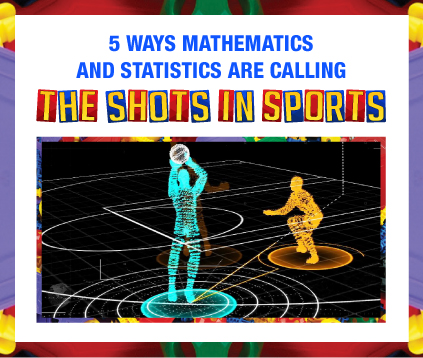
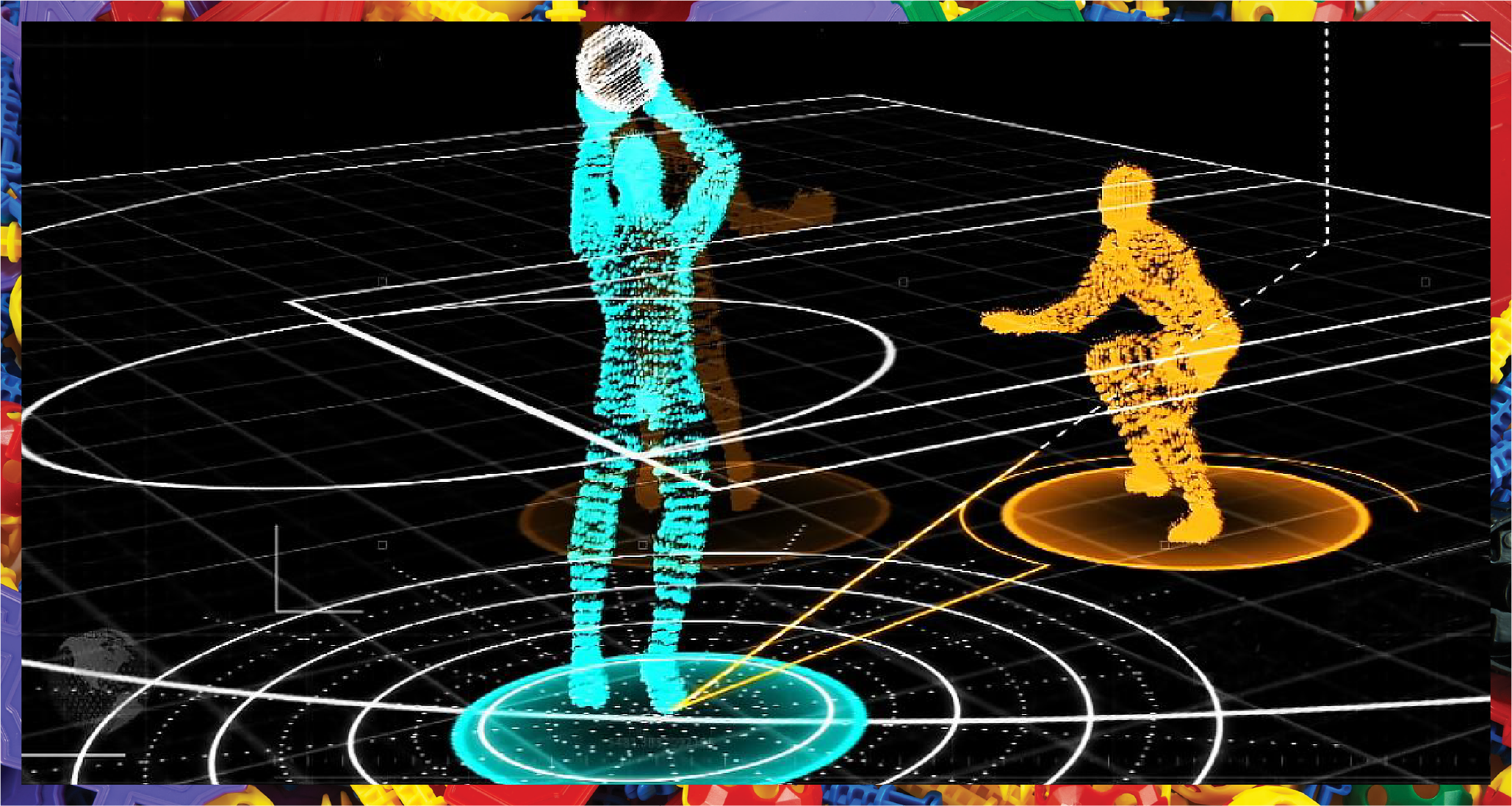
What do Tom Brady and math have in common? Football, of course! It might surprise you that statistics and complex equations are a significant aspect of the sports industry, with mathematics playing a prominent role in every sport including football to basketball, tennis to baseball and chess to horse racing.
Sports professionals use mathematics and stats for scheduling tournaments, ranking players, compiling wins and scores, determining athletic performance, predicting fan preferences and collecting real-time field data. From the most intricate integral estimators and formulas to the simplest concepts like betting, sports are being transformed through the use of big data and analytics.
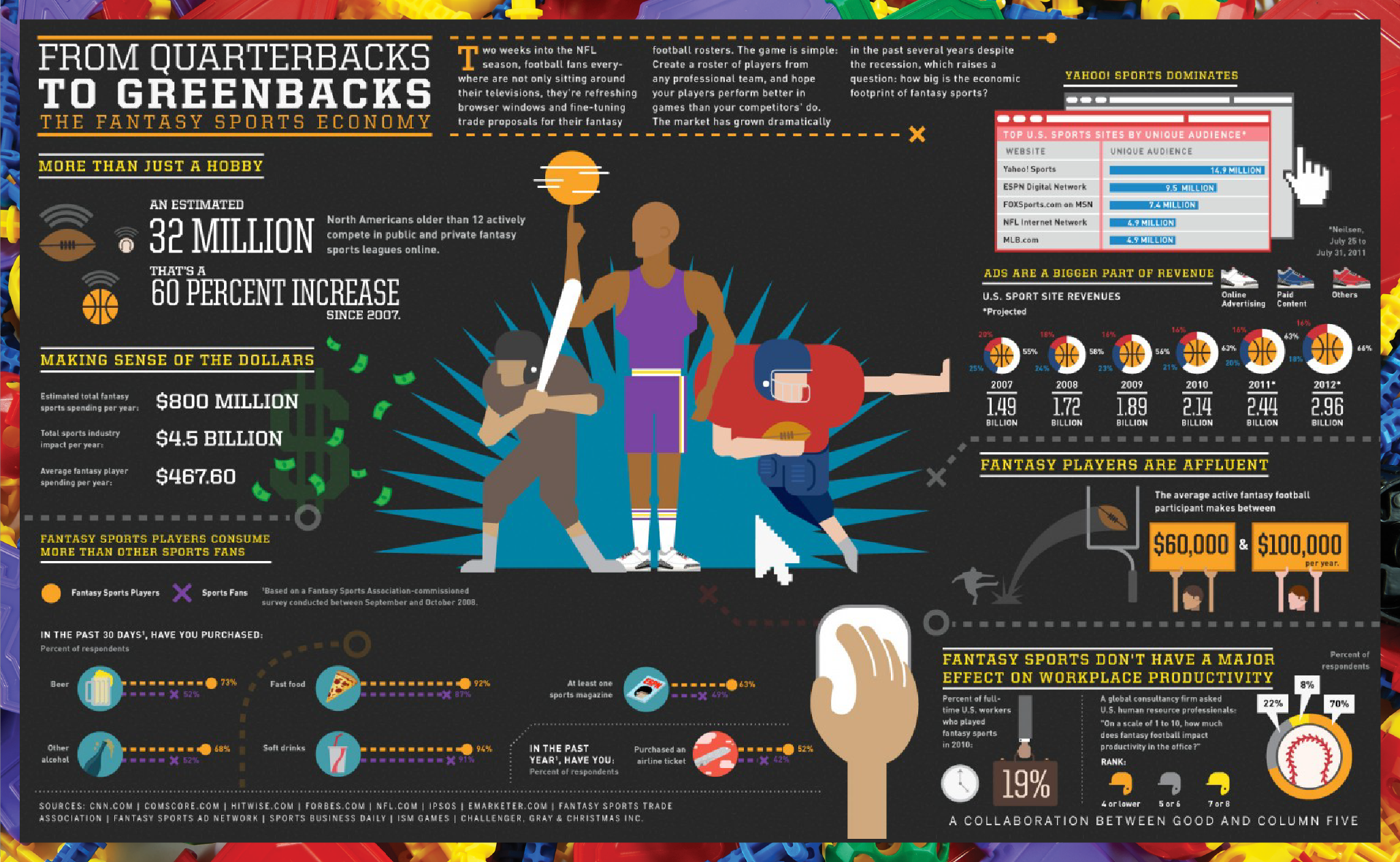
5 WAYS STATS ARE USED IN SPORTS
PERFORMANCE DATA
Performance statistics like number of tackles and number of kicks by a football player are gathered during every match and training session for analysis. These numbers help determine improvements for players and data-driven decision-making at the management level. In baseball, for example, mathematical concepts like graphs technology is used to determine the best batting order within a squad for maximum runs they can score. Scoring systems and performance enhancing programs are used in the Olympics for improving productivity.
Improved Precision in the Strike Zone
The use of big data through statistics enables better precision for the strike zone. For example, Major League Baseball Stadiums use the Pitchf/x technology from Sportvision. This technology allows stadiums to detect and monitor the pitch and is also being used in motor sports and soccer. Although umpires are the ultimate authority on making decisions for specific game moments, the technology and real-time stats help make more informed judgements. Using the statistics from Sportvision technology, referees can easily tell whether something is a ball or a strike.
A Huge Resource Base for Sports Buffs
The statistics collected during the games are organized and presented in useful formats for use in online databases and websites where fans have access to them. These provide informative insights into details like player ratings, performance dynamics and match highlights like goal or scores including comparisons with other games in the tournament. Mathematics facilitates the efficiency of sports operations, especially with the number of games involved in league sports. Horse racing makes use of mathematics to rate horses, depending on their performance in earlier matches. These rankings play a vital role in evaluating a horse’s value when the next bet is placed.
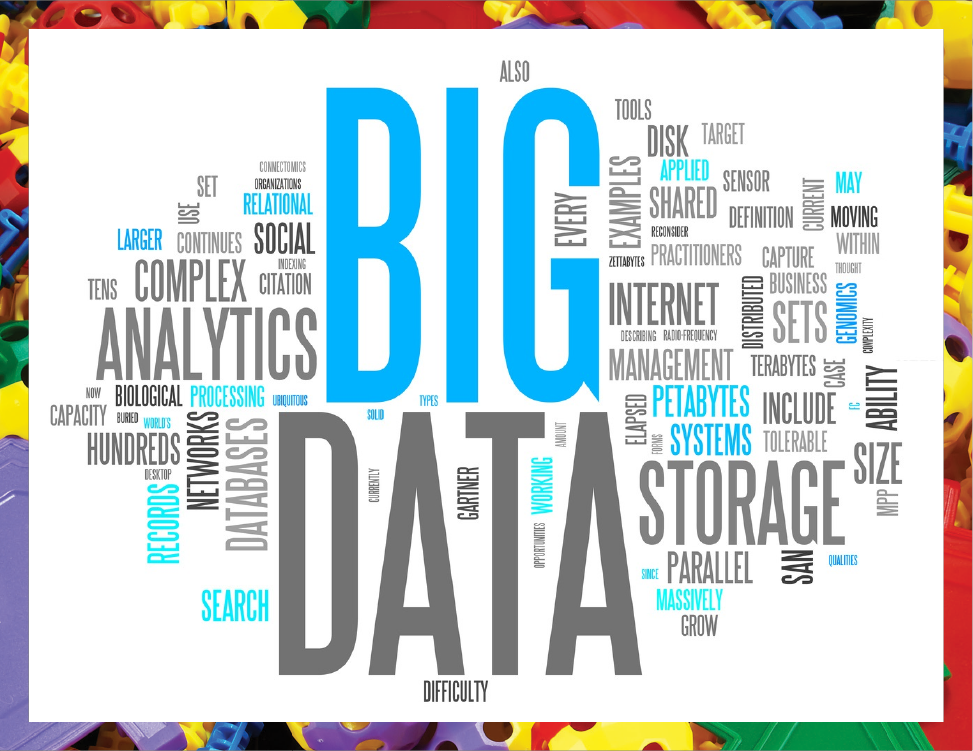
REAL-TIME FIELD DATA COLLECTION
Real-time statistics collected from the field during a match is an effective way of creating a database of valuable information for better analytics. MotionWorks Sports Solution, for example, uses RFID tags attached to sports gear like balls, rackets and other equipment. This enables the tracking of movement, distance and speed. These tags can blink 25 times per second and provide real-time data within 120
milliseconds! Cameras in arenas provide useful information such as movements on every player, pitch conditions and the movement of the ball.
Real-Time Field Data Collection
Real-time statistics collected from the field during a match is an effective way of creating a database of valuable information for better analytics. MotionWorks Sports Solution, for example, uses RFID tags attached to sports gear like balls, rackets and other equipment. This enables the tracking of movement, distance and speed. These tags can blink 25 times per second and provide real-time data within 120 milliseconds! Cameras in arenas provide useful information such as movements on every player, pitch conditions and the movement of the ball.
INSIGHT INTO FAN PREFERENCES
Statistics are being increasingly used for predicting fan preferences based on the data gathered during matches. These can be used to enhance the experience of sports enthusiasts. The majority of sports teams use mobile apps offering special content, ticket discounts and orders for in-seat concessions to evaluate the specific needs and requirements of fans.
WHY THIS DATA MATTERS
Mathematics and statistics are widely being used in ‘brainy’ games like bridge and chess to physical sports like football and basketball. The applications are not only limited to keeping records of scores or tracking a player’s performance. From pitches and umpires to football clubs and offices, these statistics form the essence of contract signings, injury prevention, performance analytics and
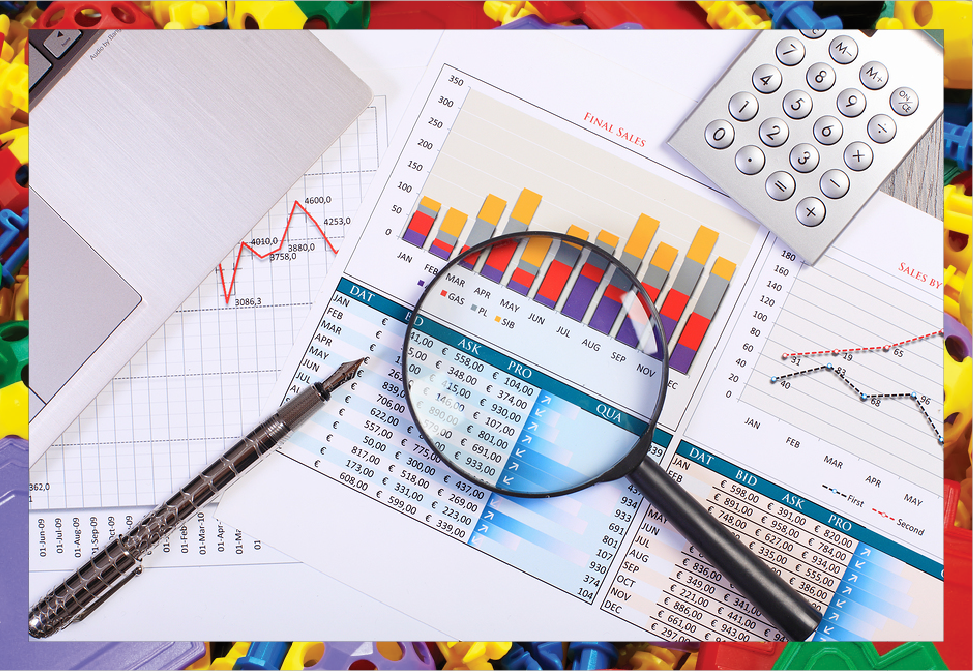
score landings. So, the next time you check out the Patriots’ stats, keep in mind you’re looking at data that determines the future of the game itself.





